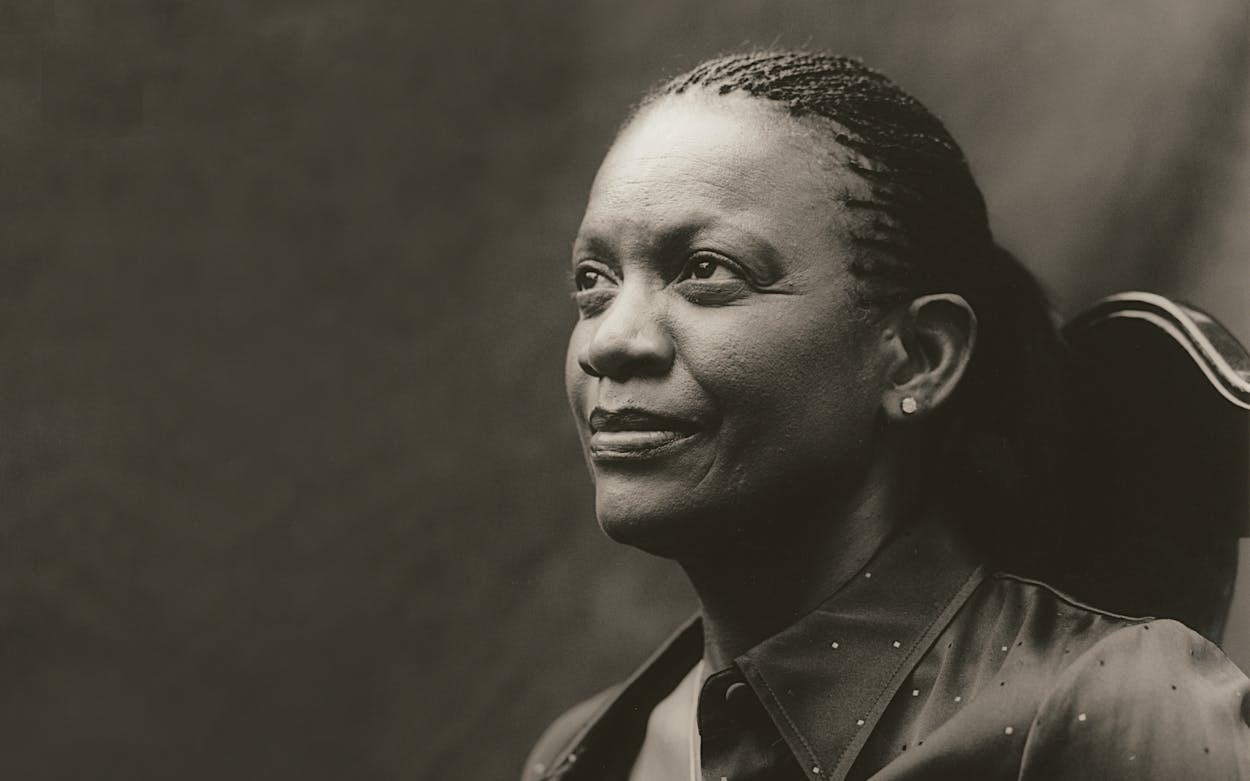At last, the battle is joined. As of yesterday, Bev Kearney filed suit against the University of Texas, alleging discrimination on the basis of her race and sex. For people who have followed the case of the country’s most famous track coach—“the winningest African American coach in any NCAA sport” according to the petition—against her former employer, there were few surprises. Kearney lost her job in October 2012 for having a long term affair with a student-athlete she was coaching. She now claims that while other people—specifically white males—were allowed to have sexual relationships with students without repercussions, she, a gay black female, was fired for doing the same thing. Further, she says she was subjected to repeated racism from the head of the men’s track team, Bubba Thornton, and when she complained to athletic director Chris Plonsky and others, she was ignored. Still further, Kearney alleges she was punished just as she was set to receive a large raise, from $270,000 to around $475,000 when salary and bonuses were added in.
It’s not the greatest case in the world. Kearney’s salary was always higher than that of other coaches in the UT track and field department, and higher than many track and field coaches in the U.S. True, her demands for a salary increase got entangled in the fight between UT’s president, Bill Powers, and the Board of Regents, but she was set to get the raise she requested until news of her affair broke in what truly was a coincidence, not a conspiracy, as she suggested to me when I wrote about her back in October. It’s also true that, where the Kearney/Thornton battle is concerned, Kearney gave every bit as good as she got, something the University will be able to show.
Then too, the Everybody-Else-Was-Doing-It defense isn’t the best tactic, but that’s pretty much all Kearney’s got. She names, among others Major Applewhite, the current defensive coordinator for the Longhorns, who had a one night stand during a Fiesta Bowl as one example of a sin that was allowed to go unpunished, along with:
other coaches within the University’s Athletic Department, current and former law school professors, current and former professors within the University’s undergraduate school, and a department chairperson. Based on information and belief, a high level administrator within the University’s Athletic Department has carried on a prolonged intimate relationship of approximately three years with a subordinate employee with whom he has direct involvement in setting her pay.
Then there’s more:
In one of the most glaring examples of the University’s blatant disregard for this being an alleged problem amongst coaches and student-athletes, the University previously employed Jim Moore (current head volleyball coach at the University of Oregon) from 1997 to 2000 despite the fact that he married his former student-athlete, Stacy Metro. These relationships between a professor, coach, or administrator and a student, student-athlete, or subordinate employee, are believed to be well known by the University administration and quietly disregarded and swept under the rug. However, without citing any specific written policy, the University has singled out Ms. Kearney, an African American female, and regarded her as different based on a nearly 10 year old relationship.
Sadly for UT, Kearney has a point. Many infractions were in fact covered up within the athletic department. But unfortunately, some of them were hers, too.
Clearly, the university has been on a clean-up program in anticipation of the suit. Thornton and the head of the athletic department, DeLoss Dodds, have either retired or announced their intention to do so; there is a new track coach for both the men’s and women’s programs, which have been combined. Perhaps the most vulnerable person standing is Chris Plonsky, the women’s athletic director, who seems to have had a hell of a time managing coaches whose egos were the size of larger some West Texas counties, and may pay a high price for trying to keep the peace.
Currently, Kearney is only asking for $1 million, which may have to do with limits on liability—what she can demand for lost past and future income. Kearney also filed the case in state court, where petitions can be amended at any time—the $1 million amount may be little more than a placeholder until further calculations can be made. State court judges might also be friendlier to a local celebrity who can show lots of good works in the neighborhood, which Kearney can.
Either way, cooler heads might suggest a settlement is in order, just to keep the University and Kearney from enduring further revelations. No one has covered themselves in glory in this episode, and the smart thing to do would be to make the whole thing go away—though it might benefit the larger world of college athletics to have the whole sordid mess played out in public. On the other hand logic and pragmatism haven’t been applied to this case so far, and both UT and Kearney are known for sticking to their guns. The latter, in particular, has nothing to lose at this point. As one member of the athletic department told me several months ago, “If Bev goes down, she’s going to take a lot of people with her.”








